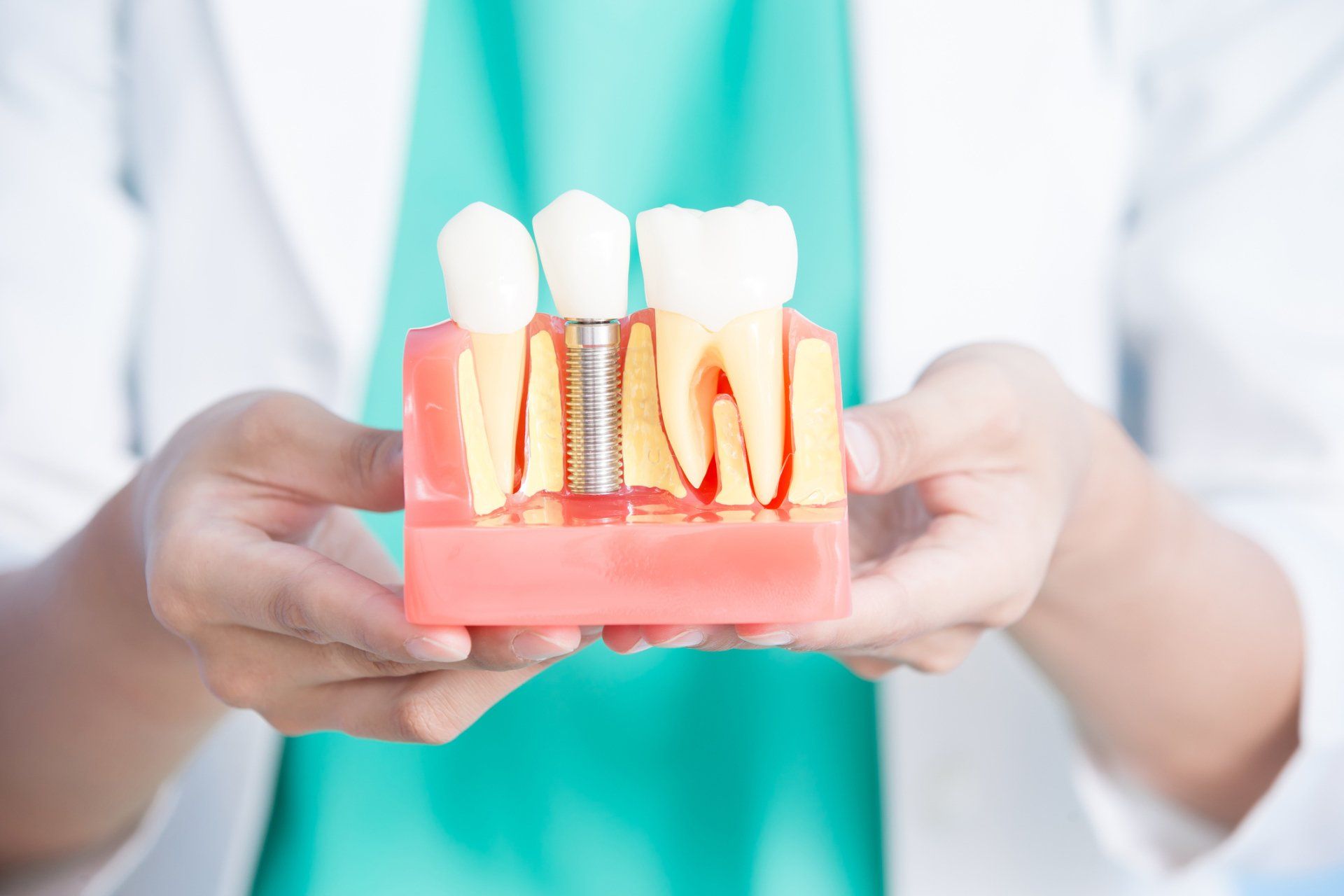For many patients, dental implants offer the most permanent, safest, and most natural looking tooth replacement option currently available. These dental appliances can restore normal completely eating, speaking, and smiling.
However, before your oral health returns to usual, dental implant surgery often requires a significant period of healing and adjustment. For example, after the initial anchor placement, your dentist may give you as many as six months to heal before the false tooth placement.
During each step of this process, you should understand what to expect as your body adjusts so that you can respond confidently and appropriately to new symptoms. In this blog, we list common normal and abnormal symptoms after your initial
dental implant surgery to place the anchor.
Because dental implant surgery is a highly involved procedure, you can expect to have some side effects, especially during the first one to four weeks after the appointment. Most patients report the following symptoms:
Facial Swelling
Because dental implant surgery involves the oral soft tissues as well as the jaw bone, the inflammatory response to the procedure can be fairly obvious. You may notice facial swelling on the side of the implant and bruises may develop as well.
General Discomfort
If you found yourself in an awkward position during the surgery, the ride home, or your convalescence immediately after the procedure, you will likely notice some general physical discomfort in the first few days afterward. Usually, this stiffness or soreness dissipates as you figure out a comfortable sleeping position during recovery.
Hyperawareness
After the placement of any dental appliance, you will likely experience a period of hyperawareness afterward. You may find your tongue drawn to the surgical site or you may find yourself looking at it frequently. Try not to touch the site except as directed in your aftercare instructions for the first few days.
Minor Bleeding
Most patients experience some minor post-surgery bleeding. Your surgeon may provide you with gauze that you can bite down on until clots form to stop the flow. This bleeding should not continue for more than one day.
Pain and/or Soreness
Expect to feel pain as soon as the anesthetic wears off. Your surgeon may recommend an over-the-counter painkiller or prescribe pain medication to help with this transition. Even after the acute pain passes, however, you may still feel some soreness as your body adjusts.
While modern dental implant surgery rarely has complications, many factors can affect the outcome of your procedure. For example, patients with compromised immune systems are more likely to contract an infection after surgery.
You should discuss any abnormal symptoms with your dentist, surgeon, or primary care doctor. Seek evaluation of:
- Bleeding that continues after 24 hours
- Fever, confusion, or other signs of infection
- Heavy bleeding that does not seem to slow down or clot
- Nausea or vomiting
- Pain sensations that change suddenly
- Pain that intensifies unexpectedly, especially if your pain level had steadily decreased up to that point in the recovery process
- Pain that persists for more than 48 hours
- Redness or other extensive surgical site discoloration
- Unusual discharge at the surgical site
If at any time you find it difficult to breathe, speak, or swallow, seek emergency medical care.
If you feel unsure about any symptom that you experience, discuss your concerns with your dentist or surgeon as soon as possible. These professionals can help you decide on the best at-home or in-office treatment to preserve your health and expedite healing.
For expert dental implant work, trust the experienced team at Premier Dentures and Implants.












